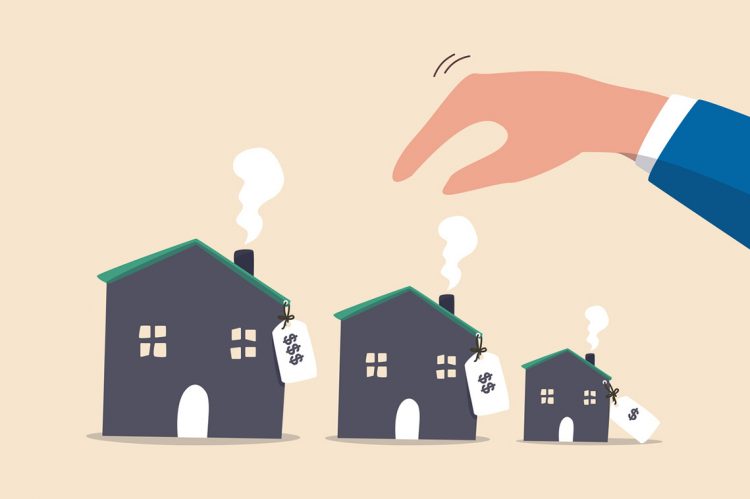While your home can attract interest in property listings and appeal to buyers during showings, the price must also be correct. Even if the buyer falls for your home, the price could prevent them from making an offer.
If house pricing is too high, buyers will move on. And when it’s too low, you could be losing out. Pricing a home to sell isn’t an easy thing to get right. Use the following tips to help find the sweet spot.
Professional experience
Unless you have spent a long time in the real estate business, you won’t have experience pricing a house to sell. But you don’t have to make this decision on your own.
Hiring an experienced real estate agent offers a professional analysis of the local market to help set the right price for your home.
An experienced REALTOR® will know the local market and better understand your home’s potential when listed.
Choosing to go without the help of a real estate agent could save you money on commission, but it could be more expensive in other ways. Homes sold “for sale by owner” tend to sell for less.
Choosing a good realtor is the best option if you want the best price for your home and less stress during the process.
Comparable properties
Similar homes that have sold recently give a good indication of the value your home could sell for. Good comparables or “comps” are homes with similar features, like the number of bedrooms and square footage.
Comparing comparable properties to your home is a good way of pricing a home. This is done by creating a comparative market analysis.
Even though comparables might have sold for a certain amount, there’s no guarantee your home will sell for the same amount. There might be features present that changes the homes’ value more than you expect.
The value of upgrades
Even if you have spent money on recent upgrades to your home, don’t overestimate the return on investment this will offer.
Improvements often increase what your home is worth, but you are unlikely to recoup the entire amount spent on the project. Improvements can make your home more attractive to buyers, increasing the chances that your home will sell quickly.
While improvements can increase the price, it isn’t going to move your home above the range of comparables.
Though if you add to the square footage, increasing the footprint, you could put your home in the same range of larger and more expensive properties.
Price adjustments
The price you list your home for can only represent the current market conditions. If the situation changes while your home is on the market, you may need to adjust your expectations about how much your home will sell for.
While there is more demand for homes in a seller’s market, you can expect a higher price for your home with more buyers around.
In a seller’s market, bidding wars can happen, driving up the price bidders are willing to pay. Setting a low price for your home can be tempting to spark a bidding war. However, this can backfire, making your home appear like it has problems and devaluing it in the minds of buyers.
It will be more challenging to sell your home in a buyer’s market, and your asking price will need to reflect that. With fewer people looking to buy a home in your area, you have to be more realistic about the price. If you set the price too high, buyers will look elsewhere.
The housing market can change, and your initial expectations for the amount your home is worth might need to change, also.
Emotional pricing
If you have lived in your home for many years, there will be a lot of emotions tied up in the property. This can lead you to value your home more than the market will bear. You can’t put a price on happy memories, and they can’t play a part in your decision on price.
You’ll also want to get the value for your home that you think you deserve. But, if you want your home to sell, you must try to leave your emotions out of house pricing.
Accurate pricing is vital no matter where you live. In changing markets, it’s essential to lean on the professionals you’re working with.
Final thoughts
Accurate pricing is crucial from day one if you want a successful home sale. Try to ensure you take all the emotions out of the process and make it a business decision.












